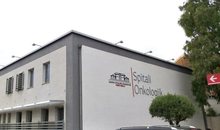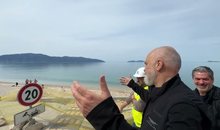
 Flash News
Flash News
Document/ Benet Beci was taken into custody by SPAK before the elections
Montenegrin Army to train Ukrainian soldiers
The Serbian Federation reveals the stadium where it will host Albania on October 11!
The 40-year-old survived the air disaster: When I opened my eyes, I saw bodies everywhere, then...
State Matura 2025, foreign language exam grades published
The Italian media provide details of the refugee housing in Albania: How the accommodation will be done, what happens if they leave the camp

The Italian Ministry of the Interior has published the tender for the management of three reception facilities for immigrants that will be opened in Albania, after the agreement signed between the Italian and Albanian governments at the beginning of November.
According to the Italian media , it is a negotiation procedure, i.e. a tender with which the state already identifies the suitable organizations to manage the structures, which are required to present an offer until March 28. The deadlines are obviously tight because of the opening date: the government wants to open the facilities by May 20.
The three structures will be able to accommodate a little more than a thousand people at the same time and among them there can be no minors, pregnant women and other people considered vulnerable. One of the three structures will be built near the port of Shengjin, about 70 kilometers north of Tirana, where the landing and identification procedures must be carried out.
The other two will be located in Gjadër. One center will be dedicated to ascertaining the prerequisites for the recognition of international protection and will be able to accommodate a maximum of 880 people, while the second structure is actually a repatriation detention center (CPR) with a maximum capacity of 144 people.
In the Italian government's intentions in Albania, the people rescued by the Italian authorities involved in maritime rescue should end up: basically the coast guard, the financial police or the navy. So not people rescued by NGOs (it is not clear why this distinction was made).
The value of the contract is just under 34 million euros, to which must be added reimbursements for transport services, municipal services, waste collection, ordinary and extraordinary maintenance, Wi-Fi connection, health care. Reimbursement for these services has not yet been determined.
According to the content of the tender, which follows that of other host tenders published in the past, the facility in the port of Shengjin will have a medical clinic dedicated to health care, a room for outpatient visits, a room with three beds and an isolation . double room. In Gjadër, however, there will be three rooms for outpatient visits, two rooms with three beds, an operating room, an analysis laboratory, a room with X-ray and ultrasound instruments, a room for psychological and psychiatric visits. A team of doctors must work within this structure 24 hours a day: a doctor specialized in anesthesia and resuscitation, a doctor specialized in general surgery, a doctor specialized in orthopedics with surgical skills, a medical staff specialized in psychiatry, an instrumental nurse, a social doctor. and health worker, a laboratory technician, a radiology technician, a health worker specialized in radiology.
Among the attachments to the notice are details of the welcome kits made available to persons welcomed to the premises. Pants, one undershirt, one top, one pajama, three shorts and three pairs of socks will be provided. Only a difference between summer and winter is expected. Guests will have one roll of toilet paper per week, one toothbrush per month, one tube of 100ml toothpaste per month, one bottle of shampoo and one bottle of liquid soap per week, a comb.
As in other reception centers, compliance checks on supplies are the responsibility of the Ministry of the Interior: in many cases those running the reception centers do not comply with the criteria indicated in the notices, but ministerial checks are random.
During the period of stay in Albania, immigrants will not be able to leave the centers: if they do, they will be returned by the Albanian authorities. However, the centers will be able to access lawyers, representatives of international organizations and the European Union, who aim to provide legal assistance to asylum seekers, as required by Italian, Albanian and European laws.
Already in the signing of the agreement between the Italian and Albanian governments, many problems related to the respect of international and European law in the management of immigrants had come to the fore. Last November, the European Commissioner for Home Affairs, Ylva Johansson, said the deal did not break EU law, "because it is outside of it". The Commission essentially said it has no responsibility for migrant rescues that occur outside its territory: the point, however, is that the agreement is not limited to rescues that occurred outside Italian territorial waters, but concerns migrants rescued by Italians. authorities, i.e. from the Coast Guard, the Financial Police or the Navy: they are all bodies that operate almost exclusively in Italian territorial waters, with the exception of very rare cases in which it is necessary to go further to save people in dangerous situations inevitable.
Latest news

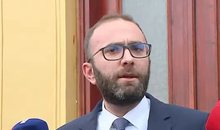
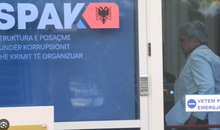
Document/ Benet Beci was taken into custody by SPAK before the elections
2025-06-12 22:52:12



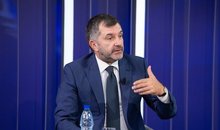
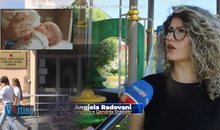


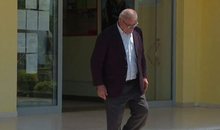
Montenegrin Army to train Ukrainian soldiers
2025-06-12 20:13:45
Italia në alarm, zgjebja po përhapet me shpejtësi
2025-06-12 20:11:39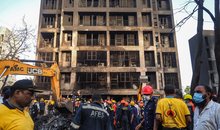

Dua Lipa gets engaged: I'm happier than ever with Callum Turner
2025-06-12 19:44:29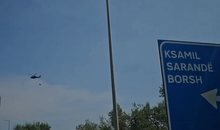
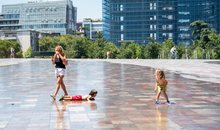
Around 29,000 Albanians left last year, INSTAT estimates
2025-06-12 19:31:23

Rama "sacrifices" the socialists to make fun of Soros
2025-06-12 19:13:33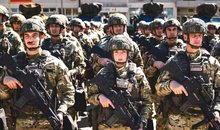
Montenegrin Army to participate in EU military assistance mission to Ukraine
2025-06-12 18:57:36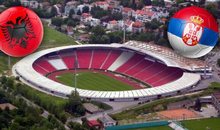



Body acne, six ways to prevent it
2025-06-12 18:05:03
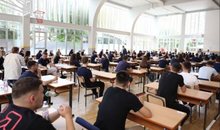
State Matura 2025, foreign language exam grades published
2025-06-12 17:31:26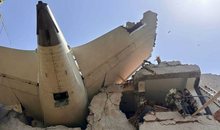
Video/ This is the moment the Air India plane crashes with 242 people on board
2025-06-12 17:27:59
GJKKO postpones the hearing for 'Golden Bullet' to June 17
2025-06-12 17:23:50
The decline of democracy in Albania, the alarm from the European Parliament
2025-06-12 17:03:38

What does the murder of Superman Veliaj reveal about May 11?
2025-06-12 16:40:53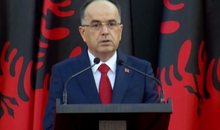
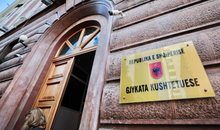
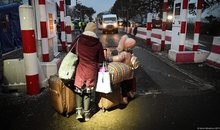
UN report: Europe is surrounded by a belt of countries in crisis
2025-06-12 16:08:47
Sula: The scandal with the state matura, a failure of the education system
2025-06-12 16:08:42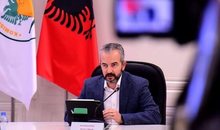

'I have no affection', Erion Isai separates from his wife
2025-06-12 15:40:38


On the 84th anniversary, the SP is ever bigger, Albania is ever smaller
2025-06-12 15:07:25
A "lazy day" a week can reduce stress and stroke risk
2025-06-12 14:56:30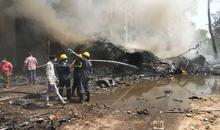
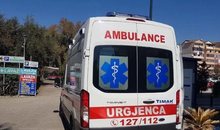
Tragic in Fier, 28-year-old found dead in the yard of his apartment
2025-06-12 14:39:15
How does temperature affect body composition?
2025-06-12 14:33:18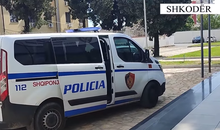
Throwing company waste into the Buna River, 31-year-old employee prosecuted
2025-06-12 14:30:11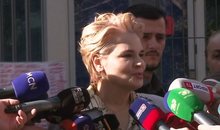
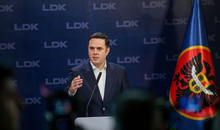
LDK's Abdixhiku unveils 15-point agenda for a unity government
2025-06-12 14:14:24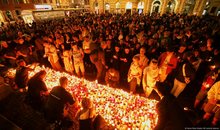
From shootings to stabbings/The history of deadly school attacks
2025-06-12 14:11:51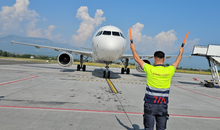
3 Albanians, part of criminal organizations, extradited to Italy
2025-06-12 13:59:15
A 26-year-old man is arrested for the armed conflict in Ali Dem
2025-06-12 13:40:31
Report/ Albania worsens in gender equality index
2025-06-12 13:40:14

Quarrel between neighbors in Patos, 35-year-old injured with screwdriver
2025-06-12 13:07:05
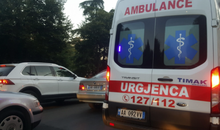
Accident on the Krahes-Memaliaj axis, a 65-year-old man is injured
2025-06-12 12:45:49
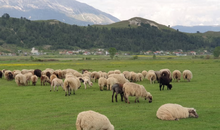

Demand a recount of votes in Tirana, the Court dismisses Alimehmet's case
2025-06-12 12:22:08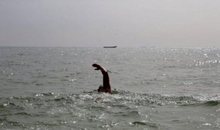
Suffering cardiac arrest, vacationer dies on Qerret beach
2025-06-12 12:05:48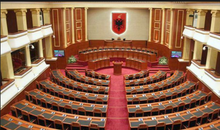

The market is "demanding" a minimum wage increase
2025-06-12 11:52:37
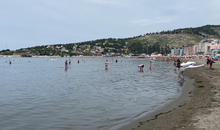
Alarm on the coast/ Elderly woman from Kosovo risks drowning!
2025-06-12 11:25:51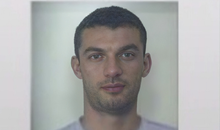
The hearing for "Golden Bullet" is postponed due to the lack of lawyers.
2025-06-12 11:06:27
The Special Court schedules the hearing for the “Partizani” case
2025-06-12 11:00:42
"We work to steal"/ Berisha releases Rama's video: The first time he is honest!
2025-06-12 10:52:11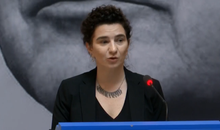

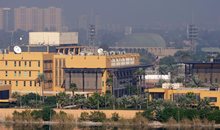
US limits non-essential staff at embassy in Iraq after rising tensions with Iran
2025-06-12 10:19:44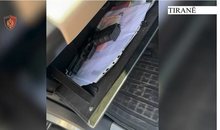

Hero in Greece/ Albanian immigrant saves two children from drowning in river
2025-06-12 09:52:46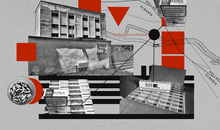
Albanian Customs Officials Crack Down on Cigarette Smuggling Business
2025-06-12 09:37:17
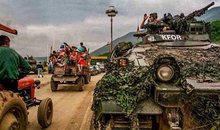
26 years of freedom! Kosovo marks Liberation Day today
2025-06-12 09:14:19
Clear skies across the country, weather forecast for today
2025-06-12 09:03:08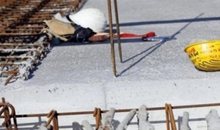
The level of salaries in construction and tourism remains below average
2025-06-12 08:49:54


Murder in Xibar i Klos/ Hazbi Velsula, the victim's cousin, in custody
2025-06-12 08:23:45
Morning Post/ In 2 lines: What mattered yesterday in Albania
2025-06-12 08:09:51
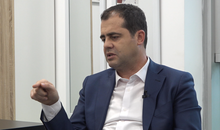
Bylykbashi: The EPP Assembly adopted the strongest resolution in this forum
2025-06-11 22:46:15
A person is found dead in Klos, suspected of being murdered
2025-06-11 22:33:38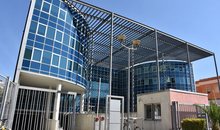
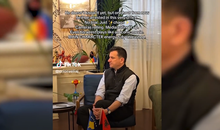

Rape the cleaning worker in Athens, the Greek police declare the Albanian wanted
2025-06-11 21:30:13
Disappointment with Latvia, Elseid Hysaj reacts after disappointing transfer
2025-06-11 21:15:08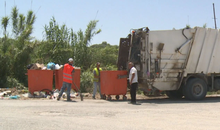

EU: New package of sanctions against Russia focuses on energy and finance
2025-06-11 20:51:17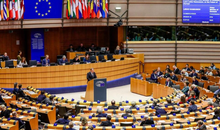

Scandal in Lezhë/ The apartment is covered by sewage
2025-06-11 20:37:59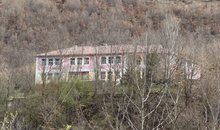
Rural schools left behind in the use of digital tools
2025-06-11 20:09:51
Kosovo bans import of sheep and goats from Albania
2025-06-11 20:01:17
Shot in the head, former Albanian policeman dies after 3 days
2025-06-11 19:41:08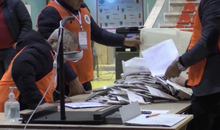
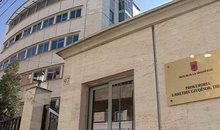

Weather-shaping factors: How cloud-dwelling microbes affect our lives
2025-06-11 19:01:22
